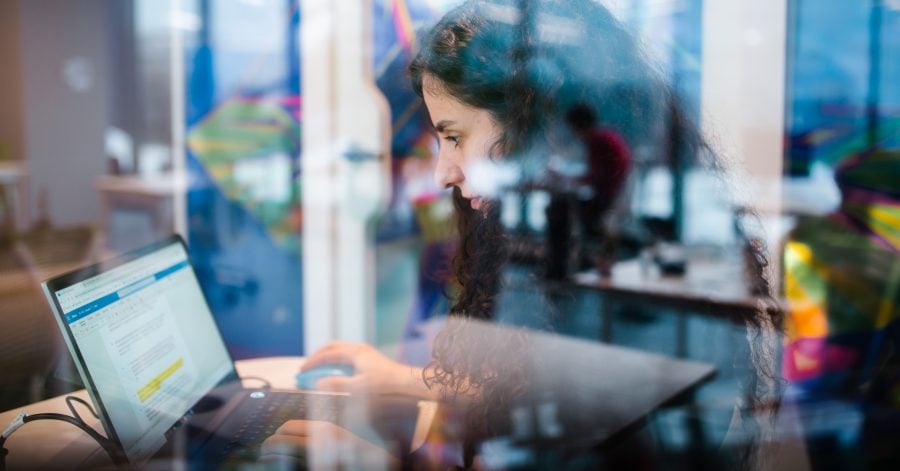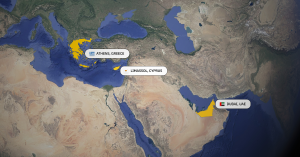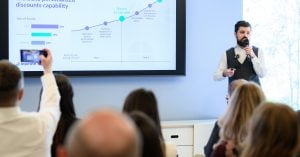Who are the drivers of change in the SEE region? While we are still observing some structural and legislative problems connected to the lack of flexibility on a governmental level, many private actors whose aim is to nurture the entrepreneurial ecosystem have emerged in different locations across the region. Most of the incubators, acceleration, and mentoring programs, as well as the open events to the whole community that popularize beneficial entrepreneurial strategies, are organized by independent entrepreneurial organizations. Today, the Recursive team is going to meet you with Impact Hub Bucharest – a Romanian-based innovation center, part of the Impact Hub global network initiative, that has contributed to nurturing the entrepreneurial spirit of the country and its connectivity to the rest of the world.
Impact Hub Bucharest is an organization uniting the community of impact entrepreneurs, mentors, and creative professionals that offers coworking, various acceleration programs, and media and entrepreneurship initiatives for startups. Launched in 2012, the organization has worked with more than 500 startups, 200 of them in 2019 alone. Its activities are in line with the agenda of the Impact Hub global network, which is spread in over 50 countries around the world and is focused on building and developing entrepreneurial communities while onboarding over 17 000 entrepreneurs to commit to building Impact Hubs and contributing to the establishment of more than 10000 startups.
With initiatives such as Startarium, Impact Hub Bucharest’s free online entrepreneurial platform that has provided over 50 000 entrepreneurs with free, national, online access to educational content, business mentoring, incubation, and acceleration projects, as well as modern funding tools such as its own crowdfunding platform and pitching competition, the local organization has become a crucial element of the local ecosystem while remaining a part of a globally connected model. “We are concentrating our efforts on developing partnerships that provide key resources to entrepreneurs, connecting them with relevant mentors and highly skilled experts. We always say that impact cannot happen in isolation; it takes shape in interdependent, lively ecosystems comprised of diverse actors, inspiring interactions, enabling policies, and resources,” shared Andra Duta, Digital Marketing Specialist at Impact Hub Bucharest.
Promoting social innovation
In a nutshell, Impact Hub Bucharest strives to develop partnerships and provide key resources to entrepreneurs, connecting them with relevant mentors and experts that could help them upscale their business ideas. The third edition of the Innovators for Children program is supported this year by Botnar Foundation, Impact Hub Basel, and Vodafone Romania Foundation and is seeking tech solutions from startups and NGO’s which are aimed at improving children’s physical and emotional health, education, food, and nutrition, safety, etc. The registration process is open until April 30th. The program has 2 stages: the 3-month acceleration stage (where 10-15 solutions will receive support from mentors in defining their business plan and business model) and after a Pitching competition, a selection of 3-5 startups and NGOs will enter a development stage of 6 months where they will work with mentors to implement their solution. The 3-5 startups and NGOs will have access to financial opportunities of a total of 50.000 euros. While projects can be registered by April 30, only 10-15 teams will be chosen to participate in the 3-month long process of building and validating their startups while taking advantage of training sessions, mentoring, consulting, and feedback meetings.
Another initiative, undertaken by Impact Hub Bucharest and Samsung Romania, is Changeneers. Launched in 2017, the project aims to solve some of today’s challenges through technology by building a community of tech startups who solve various societal challenges. Until present, the program has had 3 editions. The Food & Agri Tech program, another initiative of Impact Hub Bucharest, in partnership with EFSE (European Fund for Southeast Europe), was a pre-accelerator program launched in 2019 with the aim of innovating the food and agri sector. Eight solutions were selected in the program and received 6 months of training sessions, mentoring, and feedback meetings to develop their solutions.
Climathon Bucharest, a hackathon brought by Impact Hub Bucharest at the initiative of EIT Climate-KIC, strove to find solutions to climate change problems.
Entrepreneur-driven mission
The Partener StartUp is another initiative of the organization that supports the development of entrepreneurial skills and business initiatives in the north-west of Romania. In the long term, it aims to promote an entrepreneurial culture by encouraging education and formation for the main target and supporting 49 startups to launch their ideas and develop into sustainable businesses. Impact Hub Bucharest has also offered support for entrepreneurs to grow through entrepreneurship courses, a business plan competition, €36K financing for 49 best business plans, internship opportunities, and mentorship. The program was funded through The Human Capital Operational Programme ”Start up Plus”, while its partners include GEA Strategy & Consulting SA (Civitta Romania), University of Agricultural Sciences and Veterinary Medicine Cluj-Napoca, Transylvanian Furniture Cluster, AgroTransilvania Cluster, ARIES Transilvania, and University of Oradea.
“The need for connection and learning through sharing experiences, as well as finding the right mentor, were the topics most sought-after by young entrepreneurs. So, we dedicated our focus to developing these kinds of experiences for them in each program,” Duta shared, elaborating that there is a noticeable change in the attitudes of young entrepreneurs since Impact Hub Bucharest first started developing incubation programs targeting their age group. “We can see now even before they get selected that their application decks are much more consistent and well written, they are starting to plan the business with the right tools and focus more and more on the educational content and peer sessions,” she stated.
What is next?
Impact Hub Bucharest is set to continue most of the programs from previous years, but they are also planning on launching new initiatives mainly addressing some of the most pressing global challenges related to climate change, improvements in the agri-food sector, education, and health. All the initiatives of the Impact Hub Bucharest team will strive to involve innovative startups and their scalable solutions. Another priority will be to further diversify the stages of the startups that the organization supports – from the idea stage to scaling.








